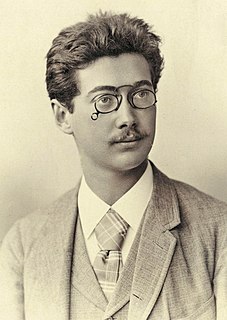A Quote by Fareed Zakaria
The great drama of Russian history has been between its state and society. Put simply, Russia has always had too much state and not enough society.
Related Quotes
Some writers have so confounded society with government, as to leave little or no distinction between them; whereas they are not only different, but have different origins ... Society is in every state a blessing, but Government, even in its best state, is but a necessary evil; in its worst state, an intolerable one.
It is unfortunately none too well understood that, just as the State has no money of its own, so it has no power of its own. All the power it has is what society gives it, plus what it confiscates from time to time on one pretext or another, there is no other source from which State power can be drawn. Therefore every assumption of State power, whether by gift or seizure leaves society with so much less power; there is never, nor can be, any strengthening of State power without a corresponding and roughly equivalent depletion of social power.
I think the other side of this is in this balance between the social state and the punishing state, remember, the social state has been decimated. And the question becomes, how is finance capital, how does the 1 percent now resort to governing? And they govern basically through a form of lawlessness and what I call the punishing state, in which we've had a punishment creep, and now it moves from the prison to almost every institution in society, from airports to schools to social services.
The ‘Great Society’ has not worked and it’s put us into the modern welfare state. If you look at China, they don’t have food stamps. If you look at China, they’re in a very different situation. They save for their own retirement security…they don’t have the modern welfare state and China’s growing. And so what I would do is look at the programs that LBJ gave us with the Great Society and they’d be gone.
We have been living amidst one of the great revolutions of human history, and we hardly know it: the penetration of the State into every aspect of human life and society. Some people regard this as good and "progressive," others regard it as tyrannical; but either way, it's a fact, a transformation as great as, say, the Industrial Revolution. Absolutely nothing is now beyond the scope of State power.
Instead of a bumbling and inefficient tool of society, the radical [libertarian] sees the State itself, in its very nature, as coercive, exploitative, parasitic, and hence profoundly antisocial. The State is, and always has been, the great single enemy of the human race, its liberty, happiness, and progress.
The attitude of the West and of Russia towards a crisis like Ukraine is diametrically different. The West is trying to establish the legality of any established border. For Russia, Ukraine is part of the Russian patrimony. A Russian state was created around Kiev about 1,200 years ago. Ukraine itself has been part of Russia for 500 years, and I would say most Russians consider it part of Russian patrimony. The ideal solution would be to have a Ukraine like Finland or Austria that can be a bridge between these two rather than an outpost.
Russia and [Vladimir] Putin`s antipathy toward Hillary Clinton from her time as secretary of state, Russia`s antipathy and loathing and fear of the U.S. State Department in general, those two - those things that we know about Russia they put a worrying cast over how successfully the new administration here has hollowed out and emptied out the U.S. State Department in just the few weeks since then been in charge.
I have never said that human society ought to be aristocratic, but a great deal more than that. What I have said, and still believe with ever-increasing conviction, is that human society is always, whether it will or no, aristocratic by its very essence, to the extreme that it is a society in the measure that it is aristocratic, and ceases to be such when it ceases to be aristocratic. Of course I am speaking now of society and not of the State.
The State is a condition, a certain relationship between human beings, a mode of behavior; we destroy it by contracting other relationships, by behaving differently toward one another....We are the state, and we shall continue to be the state until we have created the institutions that form a real community and society of men.
I am proud of Russia and I am sure that the vast majority of Russian citizens have great love and respect for their Motherland. We have much to be proud of: Russian culture and Russian history. We have every reason to believe in the future of our country. But we have no obsession that Russia must be a super power in the international arena. The only thing we do is protecting our vital interests.






























